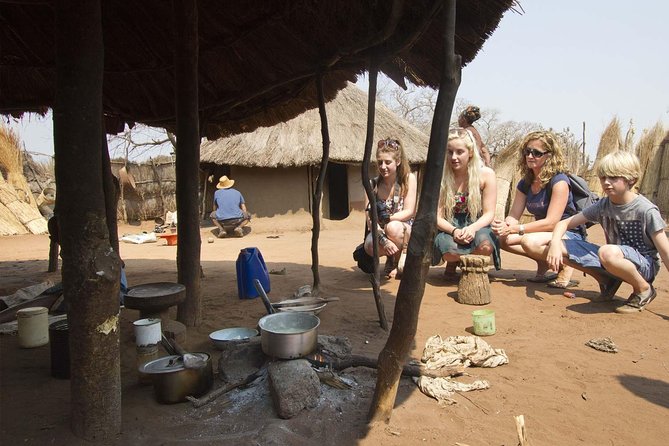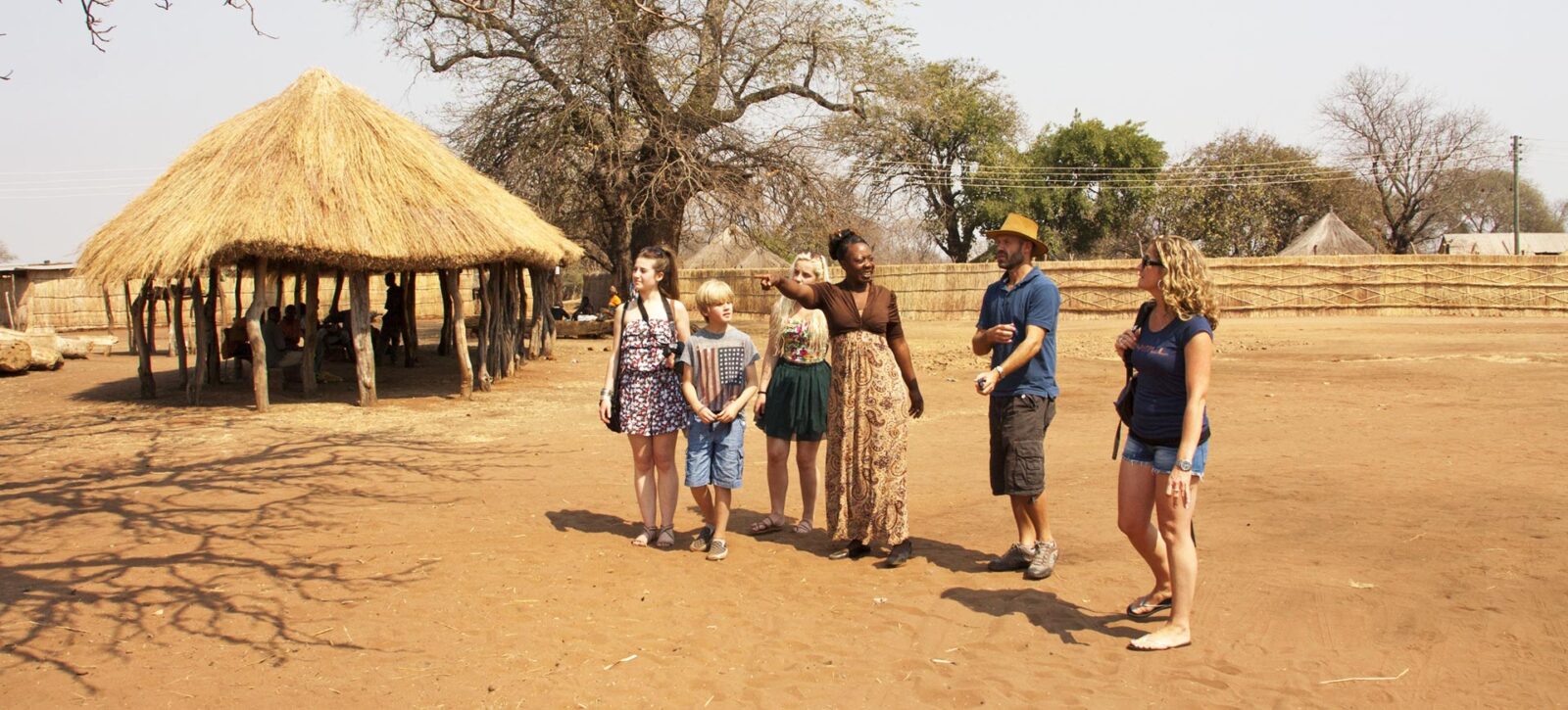African Village Tour Experience – Authentic Culture, Daily Life, and Heritage with WildHorn Africa
There is a world in Africa that exists far beyond the glamorous safari lodges, the vast national parks, and the dramatic wildlife encounters. It is a world of quiet mornings filled with the scent of wood smoke, of rhythmic songs that echo through the air at sunset, of laughter, storytelling, and deep human connection. This world lives in the African village — the cradle of community, culture, and continuity. To embark on an African village tour experience is to step into the soul of the continent itself, to see Africa not through the lens of tourism but through the eyes of its people.
In every corner of Africa, villages remain the living heartbeat of tradition. They are spaces where heritage thrives, where daily life unfolds in harmony with nature, and where humanity feels unfiltered and real. This journey is not merely an excursion; it is an immersion into identity, wisdom, and authenticity — an encounter that transforms not just the way you see Africa, but the way you understand the world.
The Meaning Behind the African Village Experience
The African village tour experience represents one of the most profound and enlightening forms of travel. It transcends sightseeing and invites travelers into genuine human exchange. Unlike the structured confines of urban tourism, the village offers something deeper — connection, understanding, and perspective.
Every African village tells a unique story shaped by its landscape, language, and lineage. In East Africa, the highland villages of Uganda or Rwanda hum with the sounds of farming, drumming, and storytelling. In Southern Africa, Zulu, Xhosa, and Himba communities reflect vibrant identities that have endured for generations. Across the Sahel and West Africa, villages pulse with the rhythm of dance, markets, and oral tradition.
The experience allows visitors to witness the raw beauty of life lived in its most natural rhythm — free from the rush of modernity yet full of joy and purpose. It reveals how African societies have maintained their balance with the land, how customs guide everyday interactions, and how community defines existence. This immersion helps travelers discover that Africa’s greatest treasures are not confined to its landscapes or wildlife, but lie within its people — their resilience, creativity, and warmth.
Daily Life in the Village: A Symphony of Simplicity and Strength
A day in an African village begins at sunrise, when the first rays of light filter through banana leaves or acacia branches. The air carries the scent of earth and dew as life stirs awake. Women prepare morning meals over open fires, children chase each other around the compound, and men gather tools for farming or fishing. There is movement, rhythm, and purpose — each act a reflection of harmony between human life and nature.
The pace of life is dictated not by clocks, but by the sun, the seasons, and the community. Work and social interaction are intertwined; labor is shared, laughter abundant, and collaboration essential. Farming is a cornerstone of village existence — crops like maize, millet, cassava, and beans grow in small family plots, sustaining both body and spirit. Visitors who join in planting, harvesting, or cooking find that the experience is as humbling as it is educational.
The role of elders is central in village life. They are the guardians of wisdom, mediators of disputes, and custodians of tradition. Their words carry authority born of experience, and their stories pass on moral lessons to younger generations. The presence of visitors is often seen as an opportunity for exchange — a moment when two worlds meet and share understanding beyond language barriers.
Evenings are moments of beauty and connection. The orange glow of sunset gives way to starlit skies, and families gather around fires to share food, music, and stories. In this quiet simplicity, visitors discover the essence of Africa — a life that values relationships over possessions, patience over haste, and community over individualism.
Tradition, Belief, and Cultural Identity
In every African village, tradition is not a relic of the past; it is a living force. Customs shape the rhythm of life, from birth to adulthood, marriage to death. Each stage of life is marked by rituals that reaffirm belonging and identity. These ceremonies — often accompanied by drumming, dancing, and symbolic acts — create bonds that unite entire communities.
Belief systems vary across the continent but share a common thread of reverence for nature and the ancestors. Spirituality is not confined to temples or churches; it flows through every aspect of daily life. The land, rivers, trees, and mountains are seen as sacred, imbued with the presence of ancestral spirits. This worldview fosters a deep respect for the environment and for all living things.
Travelers often find these spiritual dimensions enlightening. Participating in or observing a community ritual — be it a dance for rain, a blessing ceremony, or a storytelling night — offers insight into Africa’s ancient philosophy of harmony. It teaches that existence is not separate from nature, and that the strength of a people lies in their connection to the unseen threads that bind generations together.
 The Role of Women: The Pillars of African Villages
The Role of Women: The Pillars of African Villages
No understanding of village life would be complete without recognizing the pivotal role of women. They are the builders, nurturers, and sustainers of community life. From dawn until late night, their hands shape the rhythm of existence — tending fields, fetching water, cooking, weaving, and caring for families. Yet beyond these roles, women are also decision-makers, teachers, and cultural custodians.
In many African societies, women lead cooperative groups that produce crafts, manage local savings, and educate girls. Their resilience and creativity fuel not just households but entire economies. Visitors often find inspiration in their strength — in how they balance tradition with innovation, in how they sustain families through challenging circumstances, and in how they carry cultural pride with elegance and humility.
Joining women in daily activities such as basket weaving, pottery, or food preparation offers travelers more than just a cultural lesson; it offers perspective. It reveals how dignity, pride, and independence are born not from material wealth but from the ability to sustain life, nurture others, and remain rooted in identity.
Food and Hospitality: The Taste of African Warmth
To share a meal in an African village is to partake in one of the continent’s most profound expressions of hospitality. Food is more than nourishment — it is an act of unity. Meals are prepared communally, using ingredients harvested from the land. Dishes like millet porridge, roasted plantains, beans, cassava bread, and stews flavored with local spices offer a taste of Africa’s diversity and ingenuity.
Guests are often welcomed with open arms and invited to share what is available, no matter how modest. This generosity is not measured in abundance but in sincerity. Visitors soon realize that African hospitality comes from the heart — an instinctive warmth that sees strangers as potential friends.
Eating together also becomes a cultural experience, teaching travelers about social customs. In many communities, elders eat first, signifying respect, while visitors are served as honored guests. Conversations flow freely, laughter fills the air, and every meal becomes a celebration of connection.
Art, Music, and Dance: The Language of the Soul
Artistic expression in African villages is not separate from life; it is woven into the fabric of existence. Music, dance, and art serve as communication, celebration, and spiritual practice. Every sound of a drum, every sway of a dancer, and every carving of wood carries meaning.
Drums are considered sacred in many African cultures. Their beats are said to echo the human heartbeat, connecting the living to the ancestors. Visitors may witness dances performed for harvests, weddings, or ceremonies, where each movement tells a story. Participation is often encouraged, and travelers find themselves drawn into the rhythm — moving not as tourists but as part of the collective pulse.
Artistry flourishes through craftsmanship as well. Beads, masks, pottery, and textiles are created with deep symbolism. Colors and patterns represent clans, spiritual beliefs, and social status. To purchase or admire these creations is to glimpse centuries of heritage distilled into tangible form. For those seeking authenticity, these art forms are living reminders that creativity in Africa is not confined to galleries — it breathes in the villages, in the hands of the people, and in the heart of the culture.
Education, Knowledge, and the Future of the Village
Education is both a challenge and a beacon of hope in many African villages. Schools are often built by communities, and teachers work tirelessly to shape the minds of the next generation. Lessons are conducted under trees or in simple classrooms, where the thirst for knowledge shines brightly in the faces of young learners.
Visitors who engage with schools during their tours often leave transformed by the enthusiasm and discipline they encounter. Education here is not taken for granted — it is viewed as a bridge to opportunity, as well as a means to preserve identity. Children are taught not only mathematics and science but also cultural values, storytelling, and respect for elders.
In this way, education in the African village does more than prepare children for modern life; it ensures that the wisdom of their ancestors remains alive. The future of the African continent depends greatly on these communities — on their ability to blend tradition with progress while keeping their cultural soul intact.
Sustainability and Responsible Cultural Tourism
As the appeal of African village tours grows, so too does the need for sustainable and responsible tourism. Authentic cultural experiences must prioritize the dignity, welfare, and autonomy of local communities. When done responsibly, tourism becomes a tool for empowerment rather than exploitation.
Ethical operators ensure that the communities benefit directly from the tours through fair compensation, infrastructure support, and cultural preservation. Visitors are encouraged to engage respectfully — seeking permission before taking photographs, dressing modestly, and showing genuine curiosity instead of voyeurism.
This approach strengthens mutual respect between host and guest. It allows travelers to walk away enriched with understanding, while communities gain the means to sustain their traditions. The result is a partnership rooted in appreciation and reciprocity, where tourism supports education, clean water projects, and local entrepreneurship.
Responsible village tourism also protects the authenticity that makes these experiences meaningful. By choosing sustainable travel, visitors help ensure that future generations can continue to experience Africa’s living heritage in its purest form.
 The Emotional and Transformative Power of the Experience
The Emotional and Transformative Power of the Experience
What makes the African village tour experience so profound is not only what one sees but what one feels. It is the quiet humility of life lived with purpose, the kindness of strangers, and the wisdom found in simplicity. The experience invites introspection — a moment to question the rush of modern existence and rediscover the value of human connection.
Travelers often describe these encounters as transformative. The laughter of children, the strength of women, and the dignity of elders leave impressions that linger long after the journey ends. It becomes clear that Africa’s greatest wealth lies not in gold or wildlife but in the hearts of its people.
The village experience also teaches a universal truth: that happiness is not found in possessions but in belonging. The warmth of community life reminds visitors that humanity shares one home — and that our differences, when embraced with respect, create beauty rather than division.
Iconic Regions for Authentic Village Encounters
Across the continent, countless destinations offer immersive village experiences that complement wildlife and adventure safaris. In Uganda, visitors can spend time with the Batwa and Bakiga near Bwindi Impenetrable National Park, learning about forest life and traditional medicine. In Rwanda, cultural villages near Volcanoes National Park combine traditional performances with daily life interactions.
Kenya and Tanzania open doors to the vibrant Maasai communities, whose red-shawled warriors and bead-adorned women embody timeless grace and pride. In Southern Africa, Zulu homesteads, Himba settlements, and Tswana villages showcase the continent’s ethnic richness and hospitality.
Each of these encounters reveals the diversity of African identity. Though the languages, attire, and customs differ, the sense of community, respect, and connection remains universal. No matter where you go, the African village offers a window into a world that is deeply rooted yet ever evolving.
Why the African Village Tour Experience Matters
The importance of village tours extends beyond cultural curiosity. They preserve languages, crafts, and oral traditions that risk fading in the face of modernization. They provide economic opportunities for communities and foster pride among the youth who see their heritage valued by global travelers.
For visitors, these experiences fulfill a deeper need — the desire for authentic human connection. In a world where travel often feels commercialized, African village tours offer sincerity. They are reminders that the essence of travel is not movement, but meaning.
Every handshake, every story, and every shared smile becomes a bridge across continents and generations. The African village experience transforms both visitor and host — proving that in understanding others, we rediscover ourselves.
Step into the Soul of Africa with WildHorn Africa
To journey through an African village is to walk into the living heart of Africa. It is to witness beauty unfiltered, to hear the music of humanity, and to feel time slow to the rhythm of the drum and the dance. The experience is not about observing culture — it is about becoming part of it, if only for a moment.
Whether you are drawn by the artistry, the storytelling, the food, or the profound simplicity of life, every step through an African village brings you closer to what truly matters — connection, respect, and understanding.
Let the spirit of the continent guide you into its villages, where stories live in every song, and where tradition meets the sunrise of modern hope. The African village tour experience is not just a journey — it is a memory that becomes part of your soul.
Book your next African tour and cultural safari with WildHorn Africa, and let the timeless spirit of Africa’s villages reveal a world of heritage, warmth, and humanity like no other.









